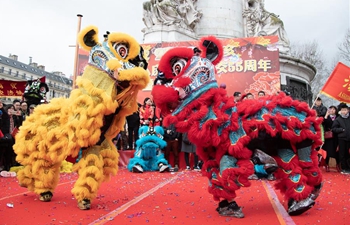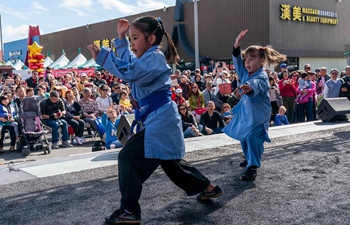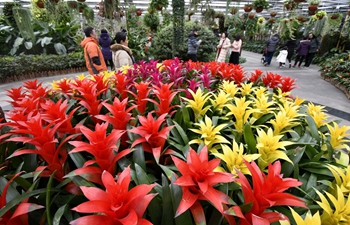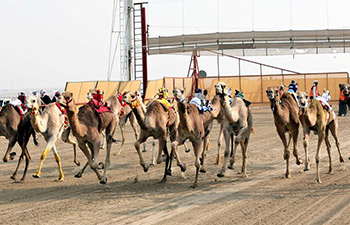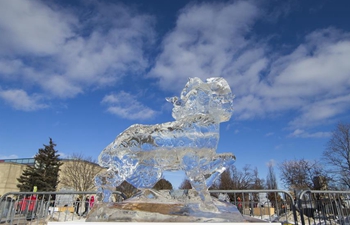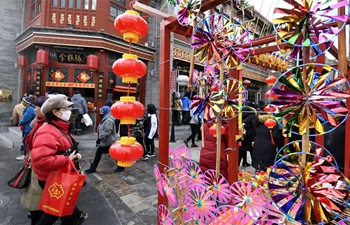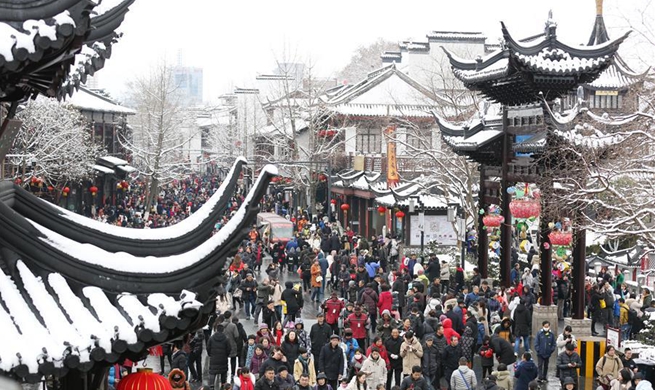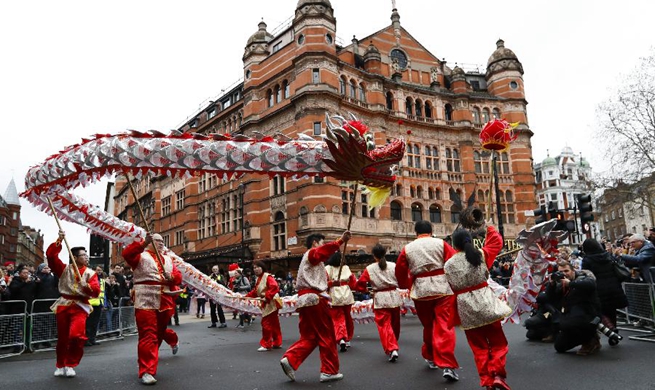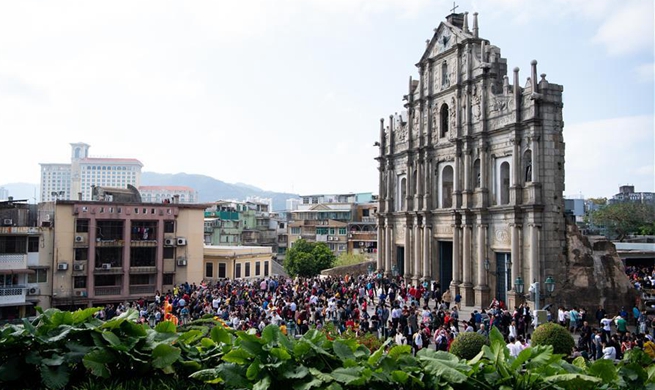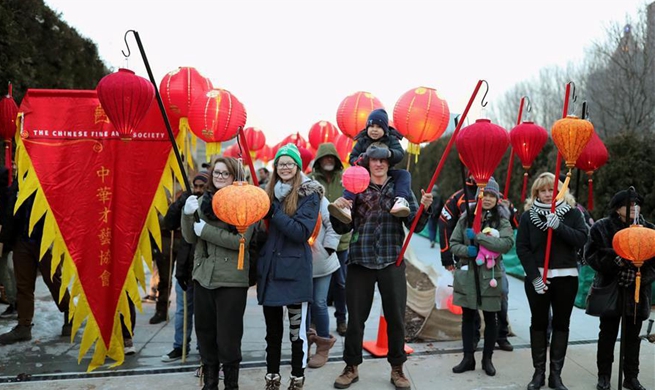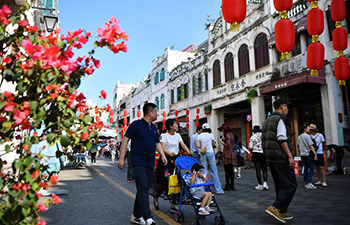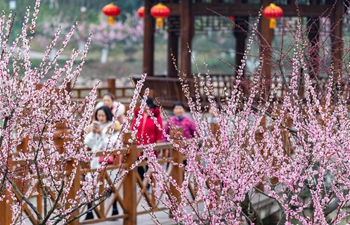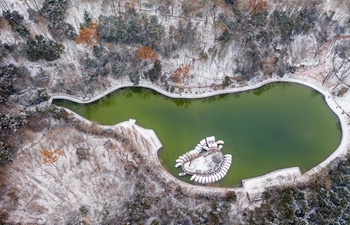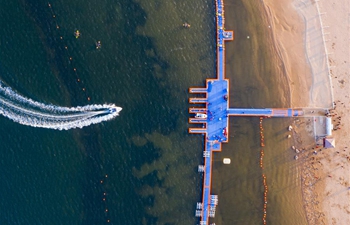by Raul Menchaca
HAVANA, Feb. 10 (Xinhua) -- Sixteen years ago, Cuban archaeology teacher Michel Sanchez and his wife moved into a traditional but dilapidated neighborhood in southwest Havana called Los Pocitos.
Despite the district's historical and archaeological value as a settlement dating from 1851, Los Pocitos had languished for years. The Quibu River, a narrow waterway that runs through the neighborhood, was considered among the most polluted in the Cuban capital.
Sanchez, who would organize school field trips to his neighborhood so students could learn urban history and archaeology firsthand, soon realized the educational tours were not enough.
"Coexisting (with the community) led me to understand that we could not remain at the academic level and that we had to take transformative action," Sanchez told Xinhua.
That realization led to Akokan, a grassroots development project that works to improve the neighborhood and the lives of some 4,000 residents.
Akokan, meaning "from the heart" in the African Yoruba language, began with small steps, such as fixing sidewalks and painting walls, and gradually grew to include more ambitious undertakings, such as creating green areas and even building a house.
As locals sought outside help to get more done, they reached cooperation agreements with several Cuban institutions, including the Martin Luther King Memorial Center, Felix Varela Center, and the Jose Marti Studies Center, as well as the city government, represented by councilor Reynaldo Romero.
"In the three years of the project, you can already notice the change in the neighborhood, especially among the children, who now have many things to learn," said Romero.
Children are a priority of the project, which offers kids workshops on baking, making puppets, learning English, recycling, storytelling, medicinal plants and world cultures, among other topics.
To raise money, Sanchez and his wife opened a cafe named Oddara in their house, frequented by visitors to the neighborhood or to one of the many workshops held here. The Jose Marti center, for example, coordinates visits by groups of foreign academics, who make donations to the project.
Romero, who served for eight years as a member of the Cuban parliament, grows his own vegetables on a small plot of land, and sells what he doesn't consume to the project.
He is also involved in a "network of solidarity courtyards" promoted by Akokan to encourage neighbors to grow organic vegetables. The scheme lets residents get involved in Akokan and earn some extra money by selling organic produce.
The project's newest initiative is called "Adopt a house in Los Pocitos," which aims to paint 500 homes to mark Havana's 500th anniversary this year.
With the help of artists and art students, the first few homes have already been painted, including that of resident Marlen Blanco, who lives with her daughter.
"People are very happy with this (project), because they have also helped us with the cleaning of the neighborhood and that is something to be grateful for," said Blanco, who has lived in Los Pocitos more than 30 years.
The Municipal Cultural Office has awarded Akokan the status of Community Project, officially recognizing its work during past three years. Authorities also donated a space to establish the project's headquarters, where Sanchez hopes to move in the Oddara, meaning "everything is fine" in Yoruba, and some of the workshops.
His dream of building a better neighborhood where residents are happy is well on its way to being realized, because as the group's motto says, "When you act from the heart (Akokan), everything is fine (Oddara)."




